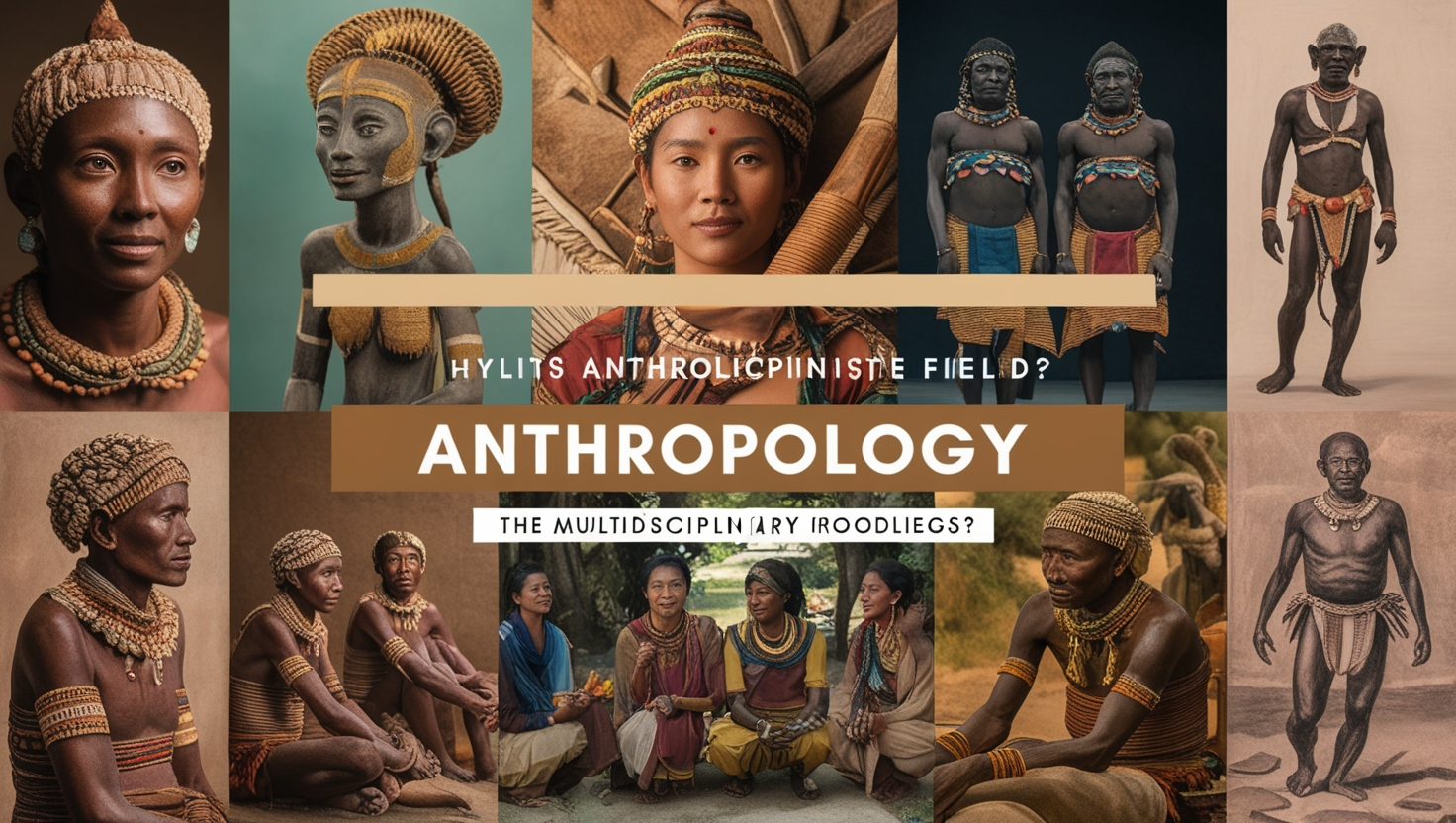Introduction to Holistic Anthropology
Anthropology is often celebrated for its comprehensive approach to understanding human beings. But why is anthropology a holistic field? The answer lies in its unique methodology and its ability to integrate various aspects of human life, encompassing cultural, biological, linguistic, and archaeological perspectives. This multidimensional approach allows anthropologists to create a detailed and nuanced picture of humanity, offering insights that single-discipline studies might need to be aware of.
The Multidisciplinary Roots of Anthropology
Why is anthropology a holistic field? It originates from its multidisciplinary roots. Anthropology draws on techniques and knowledge from various fields, such as sociology, biology, history, and linguistics. By synthesizing these diverse perspectives, anthropologists can analyze human behaviour and societies in a comprehensive manner. This integrative approach is essential for understanding the full spectrum of human experience, from our evolutionary origins to contemporary social structures.
Cultural Anthropology: Understanding Human Societies
Social humanities is a key part that responds to the inquiry, “For what reason is humanities a comprehensive field?” This subfield revolves around the examination of social assortments among individuals. Cultural anthropologists examine how different societies organise their lives by examining rituals, traditions, and social norms. This exploration of culture highlights the intricate ways humans interact with their environment and each other, demonstrating the holistic nature of the field.
Biological Anthropology: Tracing Human Evolution
Another aspect that explains why anthropology is a holistic field is biological anthropology. This subfield studies the biological and evolutionary aspects of humans, our primate relatives, and our fossil ancestors. By integrating findings from genetics, anatomy, and palaeontology, biological anthropologists can trace the evolutionary history of Homo sapiens, offering insights into our physical development and genetic heritage.
Linguistic Anthropology: The Power of Language
Linguistic anthropology is also central to the field’s holistic nature. This subfield examines how language influences social life. Language is fundamental to human culture, shaping communication, thought, and identity. By studying the diversity of languages and their social contexts, linguistic anthropologists gain a deeper understanding of how humans construct and convey meaning.
Archaeology: Unearthing the Past
Archaeology, studying past human societies through their material remains, further illustrates why anthropology is a holistic field. Archaeologists analyze artefacts, architecture, and landscapes to reconstruct historical cultures and understand their development. This subfield provides a long-term perspective on human history, revealing how past societies adapted to their environments and interacted with each other.
Integrating Multiple Perspectives
Why is anthropology a holistic field? One of the main reasons is its ability to integrate multiple perspectives. Anthropologists often employ a combination of cultural, biological, linguistic, and archaeological methods to study a single phenomenon. For example, understanding the spread of agriculture involves examining archaeological evidence, biological impacts on human populations, cultural practices, and linguistic changes. This comprehensive approach provides a fuller picture of human history and development.
Case Study: The Holistic Approach in Action
To illustrate why anthropology is a holistic field, consider the study of ancient Maya civilization. Anthropologists use archaeological evidence to uncover their cities and artefacts, biological data to understand their diet and health, linguistic analysis to decipher their writing, and cultural studies to interpret their rituals and social organization. This multidisciplinary approach reveals the complexity of Maya society, highlighting the interconnectedness of its various aspects.
The Importance of Fieldwork
Fieldwork is a fundamental practice that underscores why anthropology is a holistic field. Anthropologists immerse themselves in their study communities, participating in daily activities and observing social interactions. This hands-on approach allows them to gather rich, detailed data that captures the full complexity of human life. Fieldwork bridges the gap between theoretical research and real-world experiences, providing valuable insights into human behaviour and culture.
Holism in Modern Anthropological Research
Modern anthropological research continues to demonstrate why anthropology is a holistic field. Contemporary studies often address global issues such as climate change, migration, and health disparities. Anthropologists collaborate with experts from other disciplines to tackle these complex problems, integrating environmental science, public health, and economics into their analyses. This interdisciplinary approach is essential for addressing the multifaceted challenges facing humanity today.
Teaching Holistic Anthropology
The holistic nature of anthropology is also reflected in its educational practices. University anthropology programs encourage students to study all four subfields, fostering a broad understanding of human diversity. This comprehensive training equips future anthropologists with the tools to approach research questions from multiple angles, emphasizing the importance of a holistic perspective.
The Ethical Dimension of Holistic Anthropology
Why is anthropology a holistic field? It is also due to its ethical commitment to understanding and respecting human diversity. Anthropologists strive to avoid ethnocentrism, the practice of judging other cultures by the standards of one’s own. Instead, they adopt a culturally relative perspective, recognizing the value of different ways of life. This ethical stance is integral to the holistic approach, promoting a deeper appreciation for the complexity of human societies.
Challenges and Criticisms
While anthropology’s holistic nature is a strength, it also presents challenges. Integrating multiple perspectives can be complex and require extensive training. Additionally, some critics argue that the holistic approach may dilute the focus on specific areas of study. However, most anthropologists agree that the benefits of a comprehensive perspective outweigh these challenges, as it allows for a more thorough understanding of human life.
The Future of Holistic Anthropology
The future of anthropology lies in its continued commitment to holism. As global issues become increasingly interconnected, the need for a multidisciplinary approach is more critical than ever. Anthropologists will continue to collaborate with experts from various fields, leveraging their holistic training to address the complex problems of the 21st century. This adaptability and openness to new perspectives ensure that anthropology remains a vital and relevant field.
Conclusion: The Enduring Value of Holistic Anthropology
In conclusion, “Why is anthropology a holistic field? By combining cultural, biological, linguistic, and archaeological approaches, anthropology offers rich insights into the complexity of human societies. This holistic perspective is essential for addressing humanity’s multifaceted challenges and ensures that anthropology remains a dynamic and relevant discipline.







